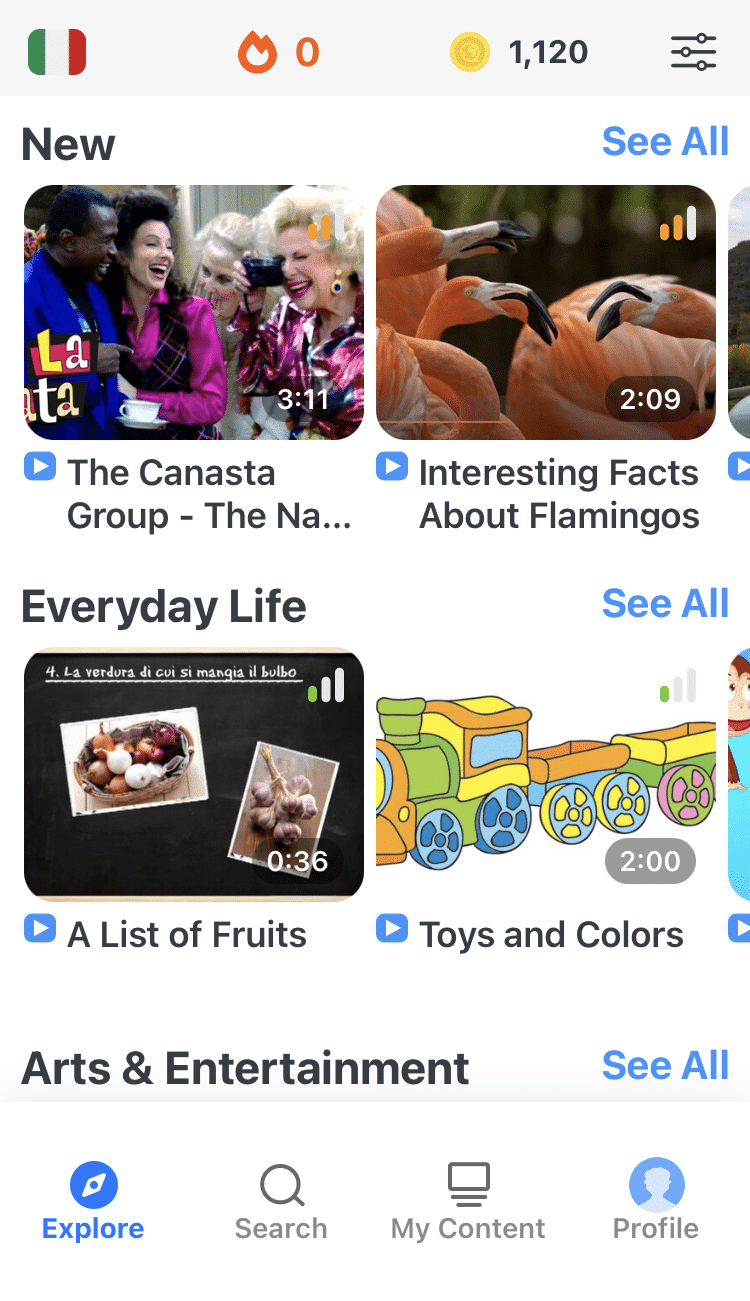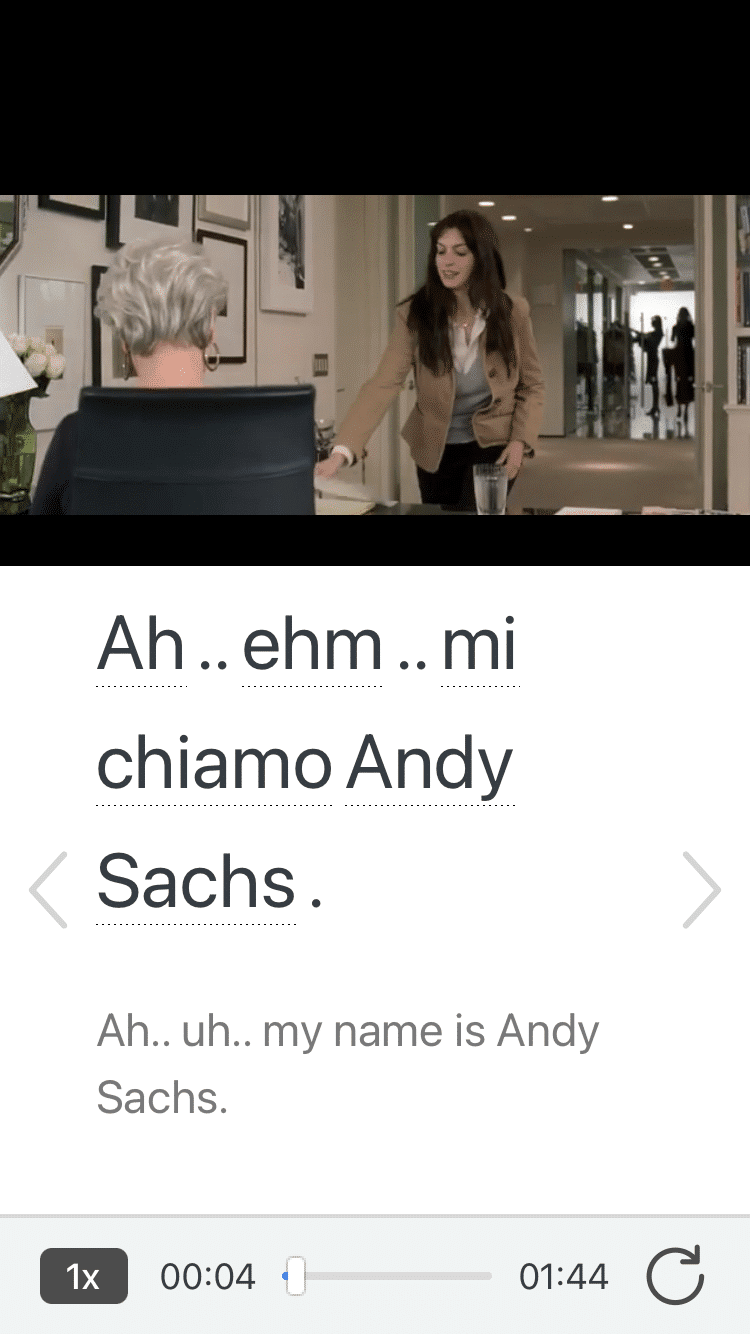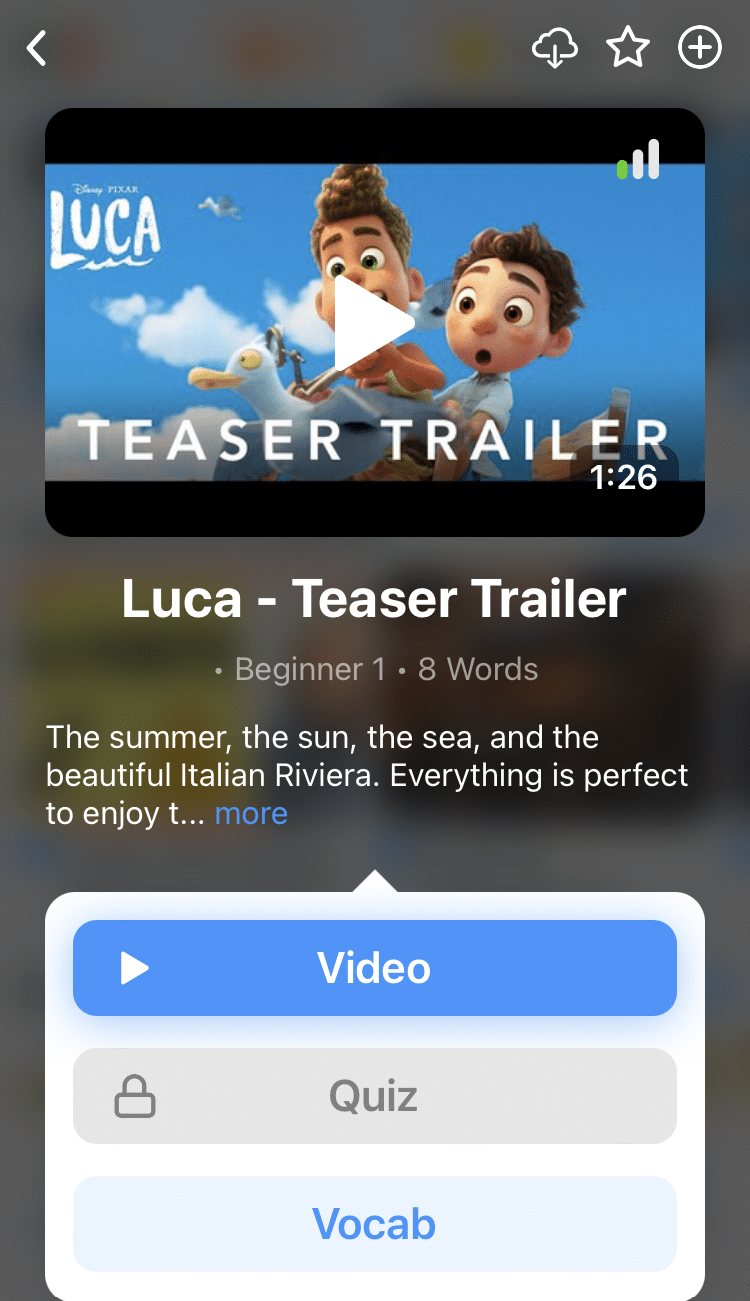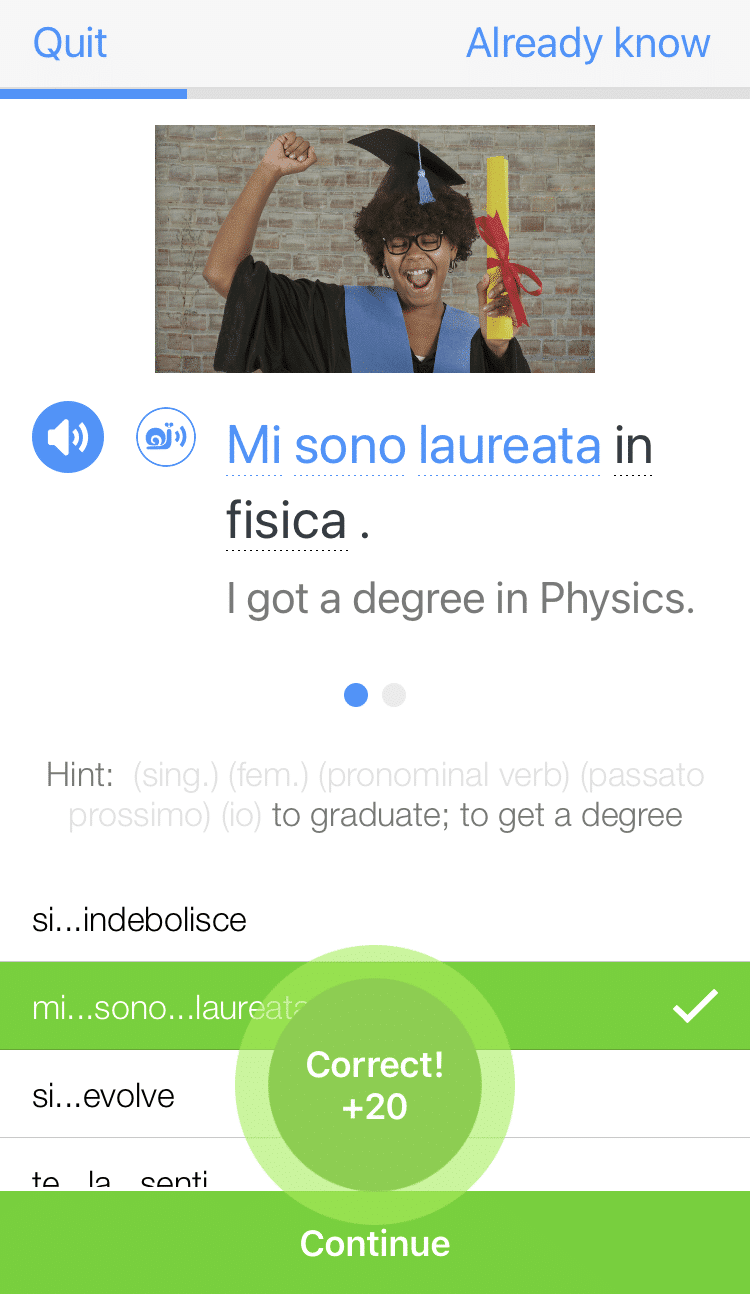
The Formal “You” in Italian: a Complete Guide
Using the wrong form of “you” in Italian can mean offending friend and foe alike—not an ideal situation considering how Italians aren’t exactly known for hiding their feelings.
Fear not! We’ve already covered the basics of Italian (in)formality before, and today we’ll take a deep dive into the formal version of the pronoun “you” in Italian.
There are two words for “you” in Italian—one formal and one informal. Read this post to learn when and how to use them correctly.
Contents
- The Difference Between Lei and Tu
- How to Conjugate Lei
- Possessive Pronouns Tu and Lei
- Plural Lei and Voi
- And One More Thing...
Download: This blog post is available as a convenient and portable PDF that you can take anywhere. Click here to get a copy. (Download)
The Difference Between Lei and Tu
In Italian, both Lei and tu mean “you.”
Lei, the formal form, is used when you’re talking to someone older or someone you don’t know well. Tu, the informal form, is used to talk to someone your own age or younger and people you know well.
If you’re not sure which form to use, you use Lei.
Here are some examples:
Lei parla italiano molto bene. — You speak Italian very well [said to a stranger].
Lei ha una grande esperienza nel settore. — You have a great experience in the industry [said to an elder].
Tu vuoi venire al cinema con me? — Do you want to come to the movies with me? [said to a friend].
Here are the most common situations where you want to use Lei:
- In situations where you want to show respect. This means for work situations as well as speaking to strangers, authority figures and elders.
- With people you’re meeting for the first time or don’t know very well, regardless of social or power status.
- When you’re not sure, such as in a relationship where you might not be certain where you fall on the social ladder, so to speak.
Think of it this way: Using Lei when it’s not necessary might make you look a little stiff, but using informal tu when you shouldn’t can be considered extremely rude.
The Difference Between Lei and lei
So far everything sounds pretty simple, right? Well, there’s one key wrinkle in that. That’s because Lei isn’t just the formal “you” in Italian—it’s also the feminine third person pronoun: lei (she).
The way to tell them apart is that formal Lei is almost always capitalized. The other lei (she) is only capitalized when it’s the first word in a sentence.
This capitalization isn’t a hard rule, however, and it doesn’t really help in spoken conversation or audio exercises. You can’t hear capitalization.
But don’t worry: You can usually figure out the difference between Lei and lei in speech just by paying a little attention. Context is a big factor in understanding language, and it’ll help you understand the difference.
There’s also the important distinction that “you” is second person and “she” is third person. If someone’s speaking in a way that must be referring to a “she” rather than a “you,” you can figure it out from there.
Here’s an example of that concept:
Ho parlato con mia nonna e lei sta bene. — I spoke with my grandmother and she’s fine.
Lei è molto gentile, grazie. — You’re very kind, thank you.
How to Conjugate Lei
While Lei and lei are completely different in use, their conjugations are actually identical.
| Leggere | To read |
|---|---|
| tu leggi | you read [informal] |
| voi leggete | you all read |
| lui... lei... Lei legge | he/she/you [formal] reads |
| Mangiare | To eat |
|---|---|
| tu mangi | you eat [informal] |
| voi mangiate | you all eat |
| lui... lei... Lei mangia | he/she/you [formal] eats |
| Avere | To have |
|---|---|
| hai | you have [informal] |
| voi avete | you all have |
| lui... lei... Lei ha | he/she/you [formal] has |
Here are some examples to see the difference in action:
Tu vai a casa? — Are you going home? [informal]
Lei va a casa? — Are you going home? [formal]
Voi andate a casa? — Are you (all) going home?
Possessive Pronouns Tu and Lei
You may be familiar with using possessive pronoun with tu, which is tua (yours):
tua madre — your mother
la tua amica — your friend
With Lei, the possessive pronouns becomes il suo or la sua, depending on the gender of the noun they’re attached to. Note that the possessive form is also capitalized.
il Suo — yours [masculine]
la Sua — yours [feminine]
Here’s an example to compare the levels of formality:
Quando ti incontri con la tua amica? — When are you meeting your friend? [informal]
Quando (Lei) si incontra con la sua amica? — When are you meeting with your friend? [formal]
Plural Lei and Voi
Lei is also—but rarely—used as a plural formal “you,” conjugated as Loro.
For example:
Al cinema, voi pagate per i biglietti. — At the movies, you all pay for the tickets. [informal]
Loro vogliono accomodarsi?” — Would you like to sit down? [formal]
Now that you know the building blocks of using the formal Italian “you,” Lei, be sure to work it into your study routine!
You could try using an immersive language learning program like FluentU to hear how Lei is used in context by native speakers.
FluentU takes authentic videos—like music videos, movie trailers, news and inspiring talks—and turns them into personalized language learning lessons.
You can try FluentU for free for 2 weeks. Check out the website or download the iOS app or Android app.
P.S. Click here to take advantage of our current sale! (Expires at the end of this month.)
Pay close attention to social context and conjugation and you’ll be speaking properly in no time, without offending anyone.
Download: This blog post is available as a convenient and portable PDF that you can take anywhere. Click here to get a copy. (Download)
And One More Thing...
If you're as busy as most of us, you don't always have time for lengthy language lessons. The solution? FluentU!
Learn Italian with funny commericals, documentary excerpts and web series, as you can see here:

FluentU helps you get comfortable with everyday Italian by combining all the benefits of complete immersion and native-level conversations with interactive subtitles. Tap on any word to instantly see an image, in-context definition, example sentences and other videos in which the word is used.

Access a complete interactive transcript of every video under the Dialogue tab, and review words and phrases with convenient audio clips under Vocab.

Once you've watched a video, you can use FluentU's quizzes to actively practice all the vocabulary in that video. Swipe left or right to see more examples of the word you’re on.

FluentU will even keep track of all the Italian words you’re learning, and give you extra practice with difficult words. Plus, it'll tell you exactly when it's time for review. Now that's a 100% personalized experience!
The best part? You can try FluentU for free with a trial.
Start using the FluentU website on your computer or tablet or, better yet, download the FluentU app from the iTunes or Google Play store. Click here to take advantage of our current sale! (Expires at the end of this month.)



